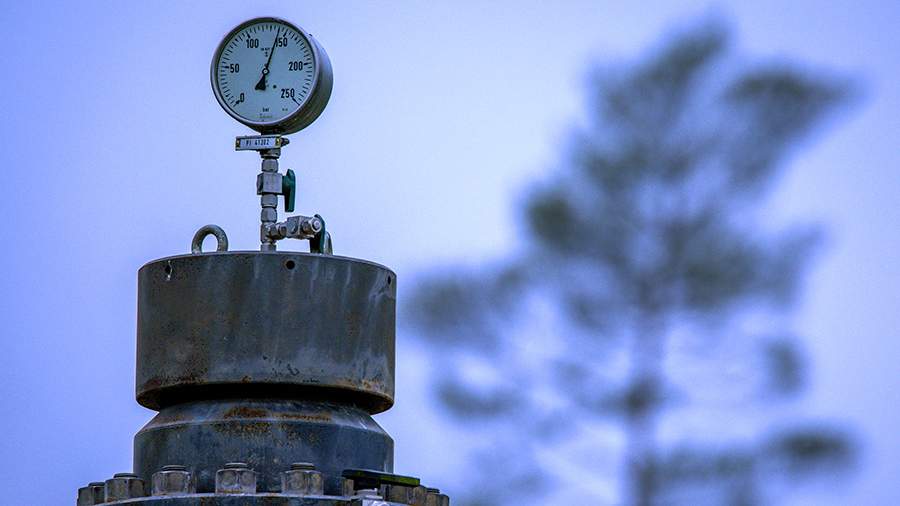
Turkey suspends gas cooperation with Israel
By Rhod Mackenzie
Türkey has suspended joint energy projects with Israel, including the exploration and production of hydrocarbon deposits in the Mediterranean Sea and the transit of gas to Europe. Despite recent predictions that these countries would surpass Russia in the EU market, the operations have been halted.
In the spring of 2022, news reverberated around the world that. "Turkey and Israel are in talks about constructing an underwater gas pipeline running from the offshore Leviathan field in Israel, through Turkey, to southern Europe. This development was been labeled a significant setback for Russia's role as a major gas provider."
Turkey's chief foreign policy adviser, Ibrahim Kalin, stated that natural gas from the eastern Mediterranean could serve as an alternative source for the European Union, which aims to reduce its reliance on Russian gas amid the Russia-Ukraine situation.
Additionally, the Turkish side hinted at the production of blue fuel, while expressing its interest in becoming a transit country for gas from Israel.
There was nothing unexpected in this (if not for the alarming foreign policy context of last spring). Over the past 15-20 years, Turkey has been endeavouring to become a significant energy hub of European significance. Therefore, it welcomes any gas pipelines that anyone is prepared to constructto pass through its territory.
This approach appears more than reasonable. Gas consumption in Turkey has significantly increased over the past 15 years - from 35.3 billion cubic metres in 2008 to 51.2 billion cubic metres in 2022. Whilst this growth cannot be identified as continuous, with the republic consuming a record 57.3 billion cubic metres in 2021, fluctuations do not negate the fact of growth. Turkey's main issue in this regard is a series of economic crises.
On the path towards developing a major gas transportation hub within its borders, this country can celebrate its achievement in successfully executing two projects: the Southern Gas Corridor and the Turkish Stream. Additionally, there are plans to increase the supply of natural gas from Azerbaijan to Europe up to 10 billion cubic metres in the medium-term and to establish a gas hub with Russia.
However, in the pursuit of becoming a transit powerhouse, Ankara has occasionally overestimated the real potential of certain projects it sought to participate in. The Nabucco gas pipeline represented a notable failure and the Israeli endeavour may soon follow suit.
In September this year, Recep Tayyip Erdogan announced that Turkey and Israel had reached an agreement on drilling operations and routes for the supply of energy resources to the republic and onto Europe. It's noteworthy that a few years ago, Turkey was openly against Israeli gas projects and even willing to use military force. However, the issue was not their Israeli identity, but their disregard of the existing geographical realities, as Ankara comprehends them.
The discussion pertains to the EastMed project, which intends to export the gas produced from Leviathan field, owned by Israel, to the European Union. The predicament arose due to the Cypriot component.
EastMed assumed the gas pipeline would run from the Israeli Leviathan to Cyprus, supplying blue fuel from the Aphrodite field to the pipeline. The entire process went smoothly, and decision-makers from Cyprus, Greece, and Israel signed numerous historic agreements after flying to visit each other. Even the US Secretary of State flew in to sign certain agreements, which was interpreted by the public as a sign of Washington's approval. Consequently, nothing can halt the project.
However, Turkey intervened and queried whether the project participants are aware of the Turkish Republic of Northern Cyprus in whose waters they intend to drill without its authorisation. The signatories of the historical treaties, including the Secretary of State for the United States, were previously unaware of such a republic. From Ankara's perspective, the lack of knowledge regarding modern political geography was regrettable as it impeded the implementation of the Eastern Mediterranean gas pipeline.
The US has withdrawn its official support for EastMed, leaving no doubt that American assistance is vital for successful ventures.
Despite this setback, potential participants continue to discuss intriguing yet unfeasible arrangements for the project. The previous choices encompassed the conveyance of Israeli gas for liquefaction to Egypt and arranging supplies through Turkey in the near future. No significant volumes were anticipated here. It was foreseen that Israel could provide a maximum of ten billion cubic metres to the EU market in the future.
On one hand, this doesn't represent a significant volume. Europe cannot even begin to restore its blue fuel consumption as this would inevitably lead to a price dispute with Asia. The current price of gas in Europe exceeds £400 per 1,000 cubic meters.
However, currently, there is no surplus of the commodity in the world. In the years 2025-2027, a crisis of overproduction in the gas industry is expected worldwide, with all its accompanying consequences. However, that is a matter for the future. For Europe, this crisis represents an opportunity to regain some of its lost ground as a blue fuel consumer. With demand continuing to rise in Asia, this will not have a significant long-term impact. In these circumstances, obtaining an extra 10 billion cubic meters from Israel, although small, is useful.
Ideally, preserving the option of importing gas from Russia, particularly via Nord Stream, would be preferable. The resource constraints of the eastern Mediterranean are not as severe in Russia. However, this is simply a utopian scenario. As an interim solution, it can be observed that the EU's most recent goal of broadening their import sources - via Israeli gas (through Egypt or Turkey) - has proven to be impractical.
However, it is evident that the portion of Russian natural gas at the potential Turkish hub will surpass the initial expectations in September 2023.
